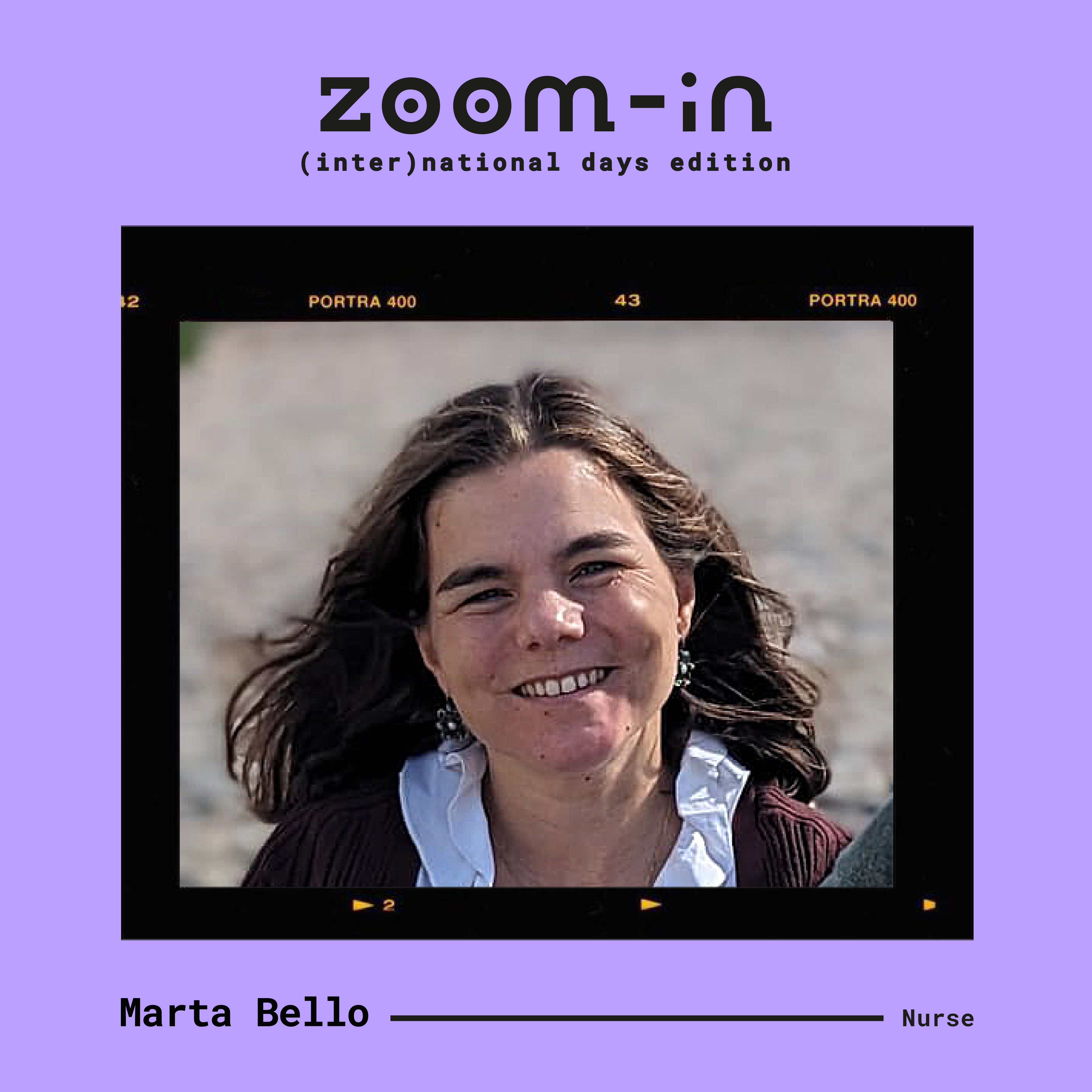On November 16th, World Pancreatic Cancer Day aims to raise awareness of this deadly disease, with the ultimate goal of improving survival rates and reducing the risks of pancreatic cancer globally.
In order to discuss the importance of pancreatic cancer awareness, we spoke to Marta Bello, a specialist oncologic nurse from the Champalimaud Clinical Centre’s Digestive Unit and part of the core group that leads the Fast Track Pancreas Programme at the recently-opened Botton-Champalimaud Pancreatic Cancer Centre. Marta has been with us since 2013, first with the Day Hospital, before taking part in the creation of the Fast Track Pancreas Programme in 2017 and has been part of the programme ever since. Marta has a Master’s in Medical-Surgical Nursing, with her thesis being on Cancer Patient Advocacy.
The Botton-Champalimaud Pancreatic Cancer Centre is one of the first dedicated facility for pancreatic cancer treatment and research in the world. Why do you think it was time for such a centre to be created?
The harsh truth that pancreatic cancer represents today has only come to light in recent times.
We have witnessed an increase in its incidence over the last 20 years: it is currently the 4th-highest cause of death from cancer in Europe, and it is estimated that in the next 10 to 20 years it will become the 2nd-highest. However, when compared to other oncological diseases, pancreatic cancer has not always had the necessary interest and investment at a scientific level.
Today, it is urgent to join forces to fight this reality. Scientists and health professionals need to work together to find new treatment solutions and make earlier diagnoses. On a daily basis, when we accompany hundreds of people with pancreatic cancer, every decision made by our multidisciplinary teams relies on the success of this partnership.
The Botton-Champalimaud Pancreatic Cancer Centre aims to increase awareness of the disease, discover new forms of treatment and bring these two fundamental players together in the fight against pancreatic cancer.
You mention ‘increasing awareness’, and one of the themes of World Pancreatic Cancer Day is 'get to know your pancreas'. Why is it important that people know more about this?
I think "Get to know your pancreas" is referring to improving our knowledge of what the pancreas actually is, what its functions are, the importance of maintaining its health, and how we can do that. For example, people should know that the main risk factors for pancreatic cancer include smoking, excessive alcohol consumption and obesity. Avoiding such consumption, following a healthy diet and having an active lifestyle with regular physical activity are options that we should all take.
Knowing the pancreas also means recognising signs and symptoms that may indicate illness, particularly cancer. Pancreatic cancer is often a disease that appears almost silently. Symptoms are few and easily confused with other problems and include abdominal pain, nausea, lack of appetite, weight loss and tiredness, among others.
Knowing the pancreas will make it easier to seek medical help for an early diagnosis, which, in turn, will increase therapeutic possibilities.
Could you outline some of your duties as a specialist nurse in the Pancreatic Centre, and what you enjoy about that role?
In the Fast Track Pancreas Programme, most of the time the nurse is the patient's first point of contact with the Champalimaud Clinical Centre, accompanying them closely throughout their therapeutic journey.
I like to get to know the specificities of each case and give the patient and family the opportunity to convey their main concerns and fears to us, help to establish priorities, and assist in making conscious and informed decisions.
Besides this, part of my job is to be a point of contact between the various participants in the multidisciplinary team. I like that my work contributes to effective communication between everyone and facilitates quick, patient-focused decision-making.
The most challenging (but also most rewarding) part is putting all of this together, in a timely fashion, to create a positive healthcare experience for the patient.
Finally, what do you hope for the future of the Fast Track Pancreatic nursing team?
I would like the team to continue to grow with passion for what they do. I believe that this is how we will be able to remain close to the patient, increasing the fruits of our work in the relationship with the patient and in the relationship with the multidisciplinary team.
Being a nurse in the Fast Track Pancreas programme is demanding and challenging every day. It is also very different from the type of work that is talked about in universities, or what we are used to doing in hospitals and health centres.
I would like this aspect of nursing to reach universities and nursing research, to increase our knowledge about accompanying and nursing care for people with pancreatic cancer, narrowing the distance that connects us to the scientific community.
Edited by John Lee, Content Developer of the Champalimaud Foundation Communication, Events and Outreach team.



